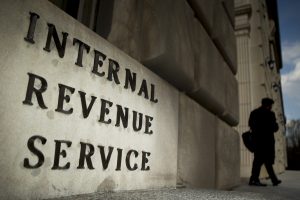 Over the past month I’ve heard and read about a number of tax protest plans. Some are idiotic, others are criminal. Some might actually work. Some taxpayers want to take advantage of imagined tax reductions promoted by scammers. Other refuse to support the federal government led by Donald Trump and are looking for the safest way to carry out their plan.
Over the past month I’ve heard and read about a number of tax protest plans. Some are idiotic, others are criminal. Some might actually work. Some taxpayers want to take advantage of imagined tax reductions promoted by scammers. Other refuse to support the federal government led by Donald Trump and are looking for the safest way to carry out their plan.
My work focuses on legal tax avoidance strategies that reduce or eliminate the need to pay federal income taxes.
Interestingly, I’ve received more calls from Trump supporters who plan to pay no income taxes than Trump protesters. The supporters with a low level of information seem to believe that Trump will end income taxes and the IRS. Many simply want to find legal methods to avoid taxes like those President Donald Trump boasted about during his campaign toward the White House. These supporters labeled “deplorables” are more likely to be influenced by fake reports on social media. One caller swore that such tax elimination plans had been confirmed on TV news. One caller asked if he could postpone his tax filing until after “this Trump tax reform thing” became law. It was clear to me that he equated a Trump election win with a personal victory over paying income taxes. At the other end of the sophistication spectrum, a group of affluent individuals I know in Philadelphia were discussing their expected tax savings under Trump. Even with modest tax reform, they each stood to save hundreds of thousands of dollars per year. The difference here was that they were not expecting any tax windfall, had not expected Republicans to win, but now find themselves ready to gain by almost any type of tax reform that may follow. One way or another, it seems that many Americans have adopted an expectation of paying less to support the federal government.
We are likely to hear more about organized tax protest movements. The IRS isn’t happy about individuals who promote tax protests. The IRS Criminal Tax Handbook says: “Over the past thirty years, illegal tax protesters have developed numerous schemes to evade their income taxes and frustrate the Internal Revenue Service under the guise of constitutional and other objections to the tax laws. Individuals who merely express dissatisfaction with the income tax system are not criminally prosecuted. However, the right to freedom of speech is not so absolute as to protect conduct that otherwise violates or incites a violation of the tax laws.” IRS could become more aggressive in prosecuting tax protest organizers despite candidate Donald Trump’s boasted that he would eliminate the IRS. The IRS abolition move is difficult for me to imagine but apparently has broad support. The belief that IRS will soon be abolished appears to embolden some tax protesters, especially those with lower levels of education on such matters.
Tax protest is what started the American Revolution. We might conclude that ended well. On the other hand, the Whiskey Revolution a few decades later is an eyesore for our nation.
How will modern tax protests work out? I suppose it depends on the strategy. I expect that Donald Trump’s presidency will be a blessing for tax planning professionals. As for me, I will continue to advise on legal tax-reducing strategies that are not politically based but that allow any person with the appropriate motivation to reduce or eliminate their federal income tax liability. While I am committed to dis-empower the Trump regime through other social activism, I see no need to change strategies on taxes. This same approach to taxes has served me well for over 30 years and I see no reason to change direction now no matter what the next few years may bring.

Leave a Reply